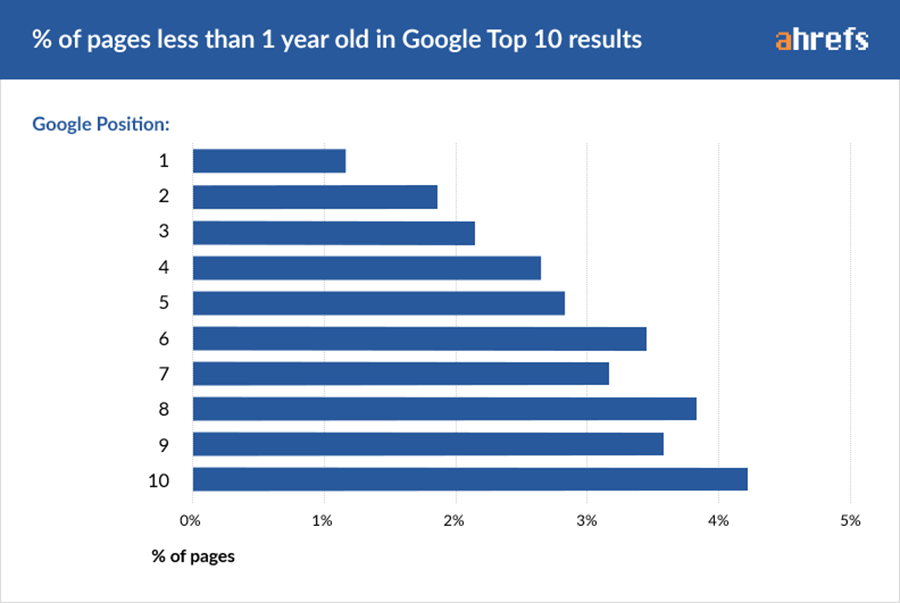Are Quick SEO Results Possible? 


Every business wants to become the brand loved by all. With a digital presence, this is made even more possible. High search engine rankings can translate into loads of traffic, ready to turn into click-happy customers. After all, more people means more sales, right?
SEO is a huge part of making this happen. The right strategy will help you to climb up the rankings and outshine the competition. That’s crucial because even moving one rank up can have a dramatic impact on your traffic.

More traffic means more leads. As a result, high Google ranks ultimately result in more conversions.
However, like all good things, achieving those rankings takes time.
We’re going to look at what you can realistically achieve with SEO within three time frames:
- Three Months
- Six Months
- One Year
Before that though, let’s look at some of the key factors that affect your website ranking.
Key ranking factors: Why does SEO take so long?
The first thing you need to be aware of is that nobody knows every factor that Google takes into account to rank your page.
Google isn’t telling anybody.
That makes sense too. If Google told you every ranking factor, you’d use the information to manipulate search results.
We know that there are hundreds of factors in place. These includes things like:
- Mobile Readiness. Does your website display properly on mobile devices.
- Load Speeds. The slower the load speed, the more people bounce away.
However, there are three that will form the backbone of your strategy.
Competition
This is a really straightforward concept. The more competitive the keyword you’re aiming for, the longer it will take you to rank.

Figure 1 – https://www.searchenginejournal.com/seo-101/how-long-seo-takes/
For example, let’s say that you’re operating a small store selling smartphones in Sydney. You’ll face a decent level of competition for your main keywords. However, that pales in comparison to the competition you’d face on a national level.
The above graph shows how that would map out. An increase in competition means an increase in difficulty. This usually results in more time needed to achieve good rankings.
You’ll generally find yourself shooting past all of the websites that don’t use SEO. Then, you’ll hit a brick wall where every site above you does have an SEO strategy.
That’s where the hard work comes in. Your SEO strategy must focus on getting past those websites, which means you need to do what they’re doing better.
Then there’s the second level of competition – the quality of the SEO professionals working on the campaign. You can tie this into the budget that a company invests into its SEO as well.
It’s this second level that’s the main reason why you usually see the top brands dominating search results for major keywords.
Your goal is to find the keywords that strike the right balance between competition and profitability.
Chasing the big keywords isn’t always a sensible strategy, especially if you don’t have the budget to compete with the sites that already rank.
Content
The days of creating 50 similar pages for 50 locations have long gone. Google aims to deliver quality content to its users. These spammy pages deliver a poor experience that doesn’t add any value. The user hits the page, takes a quick look, and bounces straight away.
In fact, Google implemented its Panda algorithm update to tackle this very problem.
Today, your content needs to have relevance and solve problems.
Quality is the key and search engines have a lot of ways of determining how useful content is to the searcher.
There’s also a lot of confusion surrounding content. Some people believe that they should stagger their publishing schedule. This allows them to introduce new content slowly so it doesn’t look like they’re manipulating search engines.
That’s the theory.
The truth is that you should publish whenever you have good content ready to go.
Ask yourself this key question: “Would I find this content useful?”
If the answer is “no”, that content isn’t good enough to make it to your website.
Try to maintain a regular publishing schedule. This encourages search engines to keep checking your website for fresh content, which means faster page indexing. Plus, it encourages people to keep coming back to check what’s new. Search engines take notice of this positive user signal, which usually leads to higher rankings.
Inbound Links
Inbound links are an important authority signal for Google. They show that people trust your content enough to encourage other people to check it out. Unfortunately, that basic concept has left linking open to abuse.
In search of fast results, some marketers chase links wherever they can find them. That results in an inbound link profile that looks like this:

Figure 2 – https://www.searchenginejournal.com/seo-101/how-long-seo-takes/
Which can eventually result in this:

Figure 3 – https://moz.com/blog/ultimate-guide-to-google-penalty-removal
That’s an unnatural link penalty. It’s Google’s way of telling you that it thinks you’ve bought or otherwise solicited links to achieve a high ranking.
That’s a bad thing.
Getting this penalty means spending days, week, or even months on cleaning up your link profile. If you don’t, Google may penalise you in a number of ways. Minor offences see your rankings plummet. Major offenders may see their websites removed from the index entirely until they clean up their link profiles.
And therein lies the problem. The faster you earn high-quality links, the faster you’ll rise in rankings. However, trying to speed up the process too much leads to an unnatural profile, which could get you punished.
Quality is the key. A ton of links from awful websites won’t serve you at all. You may get a short-term boost in rankings. However, you’ll drop right back down as soon as search engines realise what you’re doing.
The end goal is a simple one. You want your website to be so good that people link to it of their own accord. Great content, cool marketing campaigns, and a strong social media presence can all help with this.
Just keep it natural and you shouldn’t run into any problems.
Looking at your SEO results: Time frames to consider
That covers the main ranking factors that your SEO campaign will usually revolve around.
Now you need to know the time frames. What can you achieve at the 3, 6, and 12 month marks?
Performance at Three Months
You can consider this the foundational stage of your SEO efforts.
At this stage, you should rank highly for your URL and your branded keywords. You may also rank well for a few long-tail keywords. Long-tail keywords serve particular niches and generally face less competition. If you’ve created content focusing on those keywords, you may see a top 10 ranking or two appear.
It’s very unlikely that you’ll rank at this stage for your most competitive keywords. Again, this all depends on your industry and your business. Established websites have more of a chance of ranking new content at this stage than brand new sites. They already have a reputation that they can build on.
Of course, less competition also means you have a better chance of ranking.
That’s understandable too. You’ll have spent the first few months of your SEO campaign doing the housework.
You may have carried out a site audit to see what you need to improve. You’ll have spent time researching your competitors and your desired keywords. Furthermore, you’ll have probably spent a lot of time overhauling the technical aspects of the site.
All of this work takes time. As importantly, it takes time for search engines to see what you’ve done.
By the three-month mark, you’ve likely only just begun to put your content marketing strategy in place. It’s these efforts that will usually lead to whatever ranking improvements you see during this stage.
For context, we can take a look at ahrefs study of 2 million pages.
That study revealed that less than 2% of the top-ranking pages it checked were less than a year old.

Figure 4 – https://ahrefs.com/blog/how-long-does-it-take-to-rank/
Digging deeper, the study identified 5.7% of the pages had achieved top ten rankings in three months. Even then, those rankings were primarily for low-competition and low search volume keywords:

Figure 5 – https://ahrefs.com/blog/how-long-does-it-take-to-rank/
Only 0.2% of that 5.7% of pages achieved top 10 rankings for high-volume keywords in the three month time period.
So, at the three month mark you can expect the following:
- Completion of much of the foundational SEO work your website needs.
- Ranking boosts that take you above websites that don’t do SEO.
- Possible top 10 rankings for low-volume keywords.
Performance at Six Months
At this point, your SEO strategy should be in full swing. You should have:
- The beginnings of a good backlink profile (perhaps having cleaned up bad backlinks from the past).
- A regular content publishing schedule.
- A social media strategy.
You should also notice that you’re progressing up the rankings slowly. You replace the quick rise past the websites that don’t do SEO with a gradual climb past those that do.
This obviously assumes that you have a good strategy in place.
It’s at this point that you may start to get a little impatient. That’s because you still may not see a lot of top ten or Page 1 results for anything other than your low-volume keywords.
Most of your new ranked pages still come from that low-volume sector. However, you will see a marked, though not huge, increases in your medium-volume keywords.
Refer back to the 5.7% of lucky pages that ahrefs examined:

Figure 6 – https://ahrefs.com/blog/how-long-does-it-take-to-rank/
Note that past the six month mark, there’s a definite shift towards medium-volume keywords.
At this stage, your biggest obstacle is the thought that SEO isn’t working. You may feel like giving up on your strategy because it hasn’t produced the results you’re looking for yet.
Don’t do it.
You’re closer to achieving your goals even if it feels like your progress has slowed.
Performance at 12 Months
We’re not going to tell you that you’ll have every Page 1 result you ever hoped for at the twelve month mark.
In fact, 95% of new pages don’t get to the top page of search engines within 12 months.
However, those that do have a defined SEO strategy in place. They’ve put in the foundational work and they’re publishing useful content.
At this stage, you should have a healthy link profile thanks to your content and efforts on social media. You’re seen as something of an authority in your industry.
You’ll also notice a marked increase in positioning for your medium and high-volume terms. Again, you can see the trend in the lucky 5.7% graph that ahrefs created. The sites that managed to rank within a year started the first six months getting rankings for low-volume terms. By the end of the first year, that switches so that most of their new rankings come from medium and high-volume terms.
That doesn’t mean they’ve lost the low-volume stuff either.
After a year, you’re established and have a solid based to build on.
The Final Word
Here’s the most important stat of all:
The average age of the pages that have achieved the top ranking is just shy of 950 days.

Figure 7 – https://ahrefs.com/blog/how-long-does-it-take-to-rank/
That’s a little over two and a half years old.
In your first year of doing SEO, you’ll build a foundation and start ranking for some of your keywords. You may even achieve Page 1 positioning for many of them.
However, the top ranking requires more time and a lot of effort.
You’re just at the beginning. The SEO work you do in your first year generates some revenue. More importantly, it’s preparing your website for long-term success.
Now, you just need to know how to get started.
If you’re looking for a helping hand and a team to rally around your business goals, then you’re in the right place. Our experienced Gurus have figured out what works and what doesn’t in the world of digital — and have partnered with businesses across Australia and the world. In fact, 1,000+ happy businesses have chosen OMG.
Best of all, starting the conversation is easy and with no strings attached. Simply get in touch to claim your free $2,000 digital audit.









